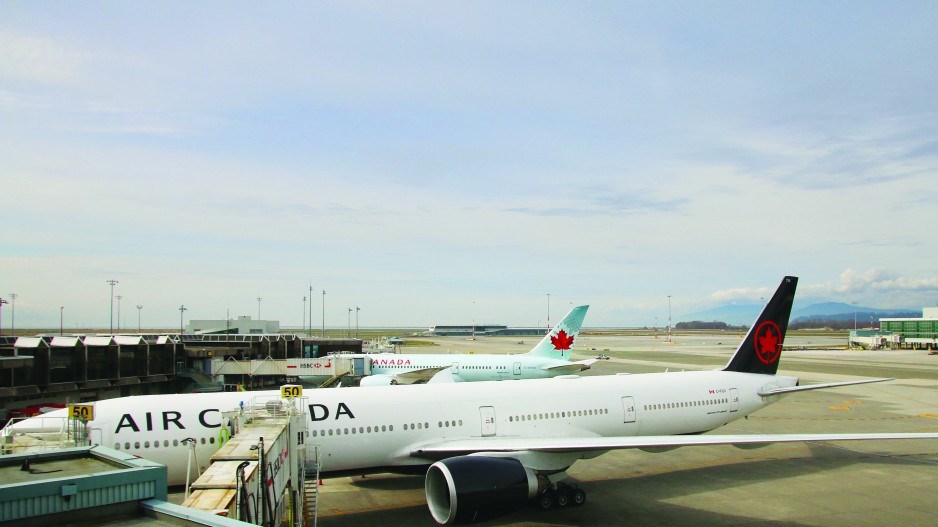Domestic aviation may account for only one per cent of Canada’s greenhouse gas emissions, but it’s a hard-to-abate sector that will require a lot of effort if the country ever hopes to meet zero emission targets by 2050.
That’s why governments and industry need to start developing a sustainable aviation fuel strategy now, according to Deloitte’s Reaching Cruising Altitude report.
“If we want to try to meet our 2030 or 2040 or 2050 commitments, we need to make some decisions really in the next 12 months,” said Andrew Pau, transport sector leader for Deloitte. “And if we don’t, we won’t meet those commitments.”
The Deloitte report cites the International Energy Agency (IEA), which says net-zero won’t be achieved without sustainable fuels accounting for 75 per cent of aviation fuels used globally by 2050.
Given that electrification is likely to be an option for only a very small segment of aviation, the world will need to produce a whole lot of low or zero emission aviation fuels. Canada alone will need six to seven billion litres of the stuff annually by 2050, Pau said.
“There are very few places in the world right now today that produce sustainable aviation fuel,” he said.
Growing a domestic sustainable aviation fuel production industry will require low carbon fuel standards, like the ones that currently apply to gasoline and diesel.
These standards require all gasoline and diesel to include a certain percentage of low carbon fuels, which can range from biofuels to hydrogen and synthetic low-carbon fuels.
The CleanBC plan is considering adding aviation to its low carbon fuel standard, Pau said, and the federal government needs to follow suit.
“We need that to be done nationally. We need some consistency in low carbon fuel standards. There’s some significant inconsistencies.”
He added that government policies also need to address feedstock. For example, energy crops like corn for making biofuels take up agricultural land that might be used for growing food.
“We want to make sure that we use feedstock that’s not intended to be used for food for people,” Pau said.
“And then we need flyers – the business community, individuals, the governments – to be willing and be prepared to, in the short-term, pay a premium to fly with SAF (sustainable aviation fuel) to create the demand signal,” Pau said.
Sustainable aviation fuel would be any low or zero emission drop-in fuel that could be burned in airplane and jet engines instead of kerosene. It could be made from biofuels, or synthetic fuels, like the kind being made by Huron Clean Energy in partnership with Carbon Engineering and Oxy Low Carbon Ventures.
Using CO2 removed from the atmosphere through direct air capture and combining it with hydrogen, the companies are making a low-carbon fuel that could be used as a drop-in aviation fuel.
In partnership with the Upper Nicola Indian Band, Huron Clean Energy is building a plant in Merritt that will initially produce 100 million litres annually.
Refiners, like the Parkland Corp. (TSX:PKI) refinery in Burnaby, are already starting to produce biofuels and retool their refineries to make low-carbon fuels for cars and trucks. Pau said they could be doing the same thing for aviation fuels.
“It’s largely the same plant investment,” Pau said.
Sustainable aviation fuels won’t be cheap. The Deloitte report estimates that it costs three to five times as much as conventional jet fuel. The report therefore says government incentives will be needed.
“To accelerate market development in Canada, incentives on both the supply and demand sides will be necessary to encourage companies to produce SAF and for airlines and customers to increase adoption and commitment.”




